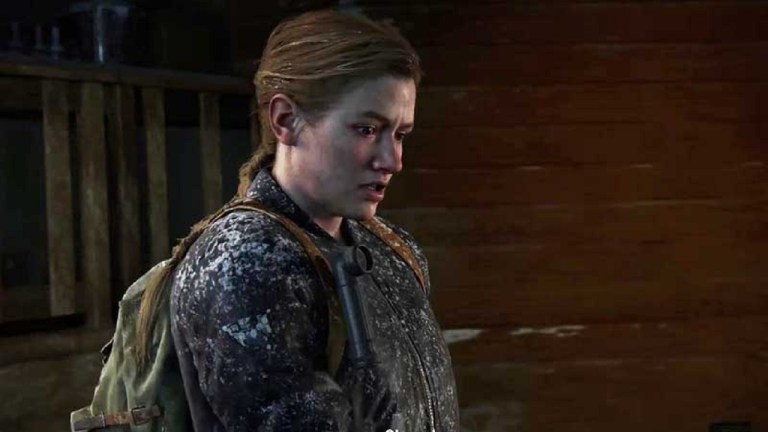HBO’s The Last of Us: The Controversy Behind Kaitlyn Dever’s New Character Abby
As HBO prepares to adapt The Last of Us Part II, let's dive into why the game's second protagonist is an online lightning rod.

This article contains a major spoiler for The Last of Us Part II and therefore The Last of Us season 2 as well.
HBO has officially announced that Kaitlyn Dever will be playing Abby in the second season of The Last of Us. Abby is a controversial character first introduced in The Last of Us Part II, and according to HBO’s description, is “a skilled soldier whose black-and-white view of the world is challenged as she seeks vengeance for those she loved.” While this description fits right into the on-screen world created by Neil Druckmann and Craig Mazin, Abby has a complicated history that goes back to the original games and takes more than a sentence to encapsulate.
Who is she exactly and what makes her so controversial among fans of the game? Allow us to explain.
Abby Kills a Beloved Character
The Last of Us Part II begins roughly five years after the events of the first game, with Ellie and Joel living in Jackson, Wyoming. Though they’ve become estranged, the two have settled into life in the town and do their part to keep the citizens safe from stray clusters of the infected. Early on, players also have the opportunity to control a new character, Abby, whose quest to avenge the death of her father brings her to the outskirts of Jackson and into Joel and Ellie’s radius. It turns out that Joel is the man she’s been looking for, and she brutally murders him in front of Ellie, Tommy, and the player as they lose control over Abby in this cutscene.
To make this shocking twist even more challenging for the player, about halfway through the game the player is shifted from Ellie’s perspective back to Abby’s. After spending hours as Ellie in Seattle, seeking vengeance for Joel’s death, we then spend close to the same amount of time as Abby, learning about her life and realizing that, like Ellie, she’s also a person caught in a vicious cycle of violence and death. To put it mildly, some people weren’t too thrilled by this exercise in empathy.
It makes sense that fans were upset that they had to play as the person who killed Joel, a character they spent a lot of time with in the first game. It also makes sense that they would be frustrated that he was killed so early on in the sequel. But at the same time, that doesn’t warrant the death threats that the performance actors for Abby received as a result.
Abby Was Subject to Online Misogyny
The hate for Abby goes beyond just plot and gameplay, though. Some people hate Abby because she’s a woman, and/or because she’s too muscular and not traditionally attractive. Playing as Ellie is acceptable, but adding another female protagonist is apparently going too far. There are also people who think that Abby is trans because of her physique, and therefore the game is pushing a “woke anti-Christian agenda” (insert massive eye roll here).
Fans having strong feelings about a character is nothing new, but the hate directed toward Abby was misogynistic and disproportionately cruel. It’s understandable that not everyone would like Abby or how her story is told in the game, but that doesn’t warrant the time and energy some of these people have spent making sure everyone knows how much they hate the character.
The HBO series and Dever herself may face similar backlash after Joel’s inevitable death in the show, depending how Druckmann and Mazin choose to adapt the second game and tackle the time jump in between the two stories. We may get to spend more time with Abby in the show before she kills him for example, giving viewers a chance to understand her motives earlier on than in the game. Or this part of the story could follow the gameplay closely for the shock value. Regardless of how Abby’s story comes to pass on screen, hopefully more people will be open to understanding her perspective and be able to separate the character on screen from the actor who plays her.
The Last of Us season 2 will go into production later this year.
